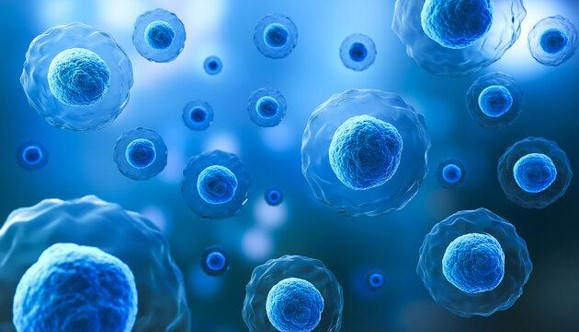Six Reasons to Try Stem Cell Treatment for Dementia
Cell-based therapies, which involve the introduction of new adult stem cells to impaired tissues in order to promote their regeneration, have been used to treat several health conditions like neurodegenerative disorders, autoimmune diseases, COPD, stroke, and so on over time. In recent decades, stem cell therapy has also been shown to be a promising cure for dementia.
According to the Centers for Disease Control and Prevention, dementia is “a general term for the impaired ability to remember, think, or make decisions that interfere with doing everyday activities. In other words, it is the loss of cognitive function to an extent that a person's daily life and activities are interfered with.
Though common among older adults (from 65 years of age), this disorder is not part of normal aging, as it has been shown that many elderly people can live their entire lives without any signs of the condition.
In this article, you will learn about stem cell treatment, how it can help treat or alleviate dementia, and for what reasons it is worth choosing. Let's get started!
How does stem cell treatment for dementia work?
Generally, the cell-based approach is usually aimed at rejuvenating degenerated or impaired tissues with the special kind of cells. In recent decades, the administration of mesenchymal stem cells (MSCs), which are an example of adult stem cells, has been used in the treatment of dementia.
When transplanted, these cells have the ability to migrate to the injury sites to differentiate into new and healthy neural cells.
Due to the potential of stem cells to differentiate into neuronal cells, migrate to injury sites, and take part in reparative processes, they stimulate the replacement of degenerated neural cells with new, healthy cells when implanted].

These properties also make cell-based therapy a promising treatment for Ahlziemer's disease (AD), the commonest type of dementia, which is believed to be due to age-related changes in the brain. These include shrinking of the brain tissue, repeated inflammation, mitochondrial dysfunction, damage to the blood vessels, or genetic changes all of which may be harmful to neurons. It also serves as a treatment approach for vascular dementia, another common type of disease.
Indications and contraindications for cell therapy
Potential applications of cell therapies include its uses in autoimmune diseases, repairing injuries to the spinal cord, improving the conditions of patients with a weakened immunological system, and helping patients that have neurological disorders.
While the indications for this method could be a noticeable symptom of disorders and/or unbearable side effects of the common drugs, some contraindications for stem cell therapy are:
- An infectious disease being in the acute stage.
- Any life-threatening or terminal health conditions.
- Mental disorders and addictions.
- Deviations of some indicators in blood tests.
- Pregnancy and lactation.
Benefits of cell therapy in dementia
Due to the numerous positive effects that MSCs can produce, the cell-based approach has a number of advantages for the treatment of the disease. Below are some:
• Enhanced nerve regeneration
Due to MSCs' ability to differentiate into Schwann cell-like cells, which are known for promoting regeneration, cell therapy for dementia treatment has been shown by studies to help enhance nerve regeneration.
• Boost nerve regeneration
MSCs have also been shown to boost nerve regeneration through the secretion of neurotrophic factors that facilitate axonal growth and stem cell differentiation into myelinating cell lines. This generally makes cell treatment for dementia helpful for restoring cognitive function.
• Activation of microglia (glial cells)
Microglia, which are located throughout the brain and spinal cord, and which act as the first form of active immune defense in the CNS, are shown to be activated by MSCs. This activation of microglia makes the process healthy for the brain or the neural environment [1].
• Other therapeutic effects
In Alzheimer’s disease experimental models, some other beneficial capacities of stem cells were demonstrated, which include improved growth of new blood vessels, modulation of the immune response, reduced oxidative stress, protection of cells from death, and even decreased plaque size.
• Side-effect free therapy
Another benefit of therapy based on MSCs administration is that there are no significant side effects when it was demonstrated both in studies and clinical trials. This makes the method good for someone facing adverse reactions from common drugs prescribed for dementia, like nausea, headache, and loss of appetite. However, while the stem cell approach can be very helpful, unproven treatments can be very unsafe when used in an inappropriate way. Make sure the clinic you are going to be treated with can provide positive patient reviews on their therapies.
• Painless procedure
Stem cell therapy is a minimally invasive procedure that is painless. During the treatment, a cell-based product is administered into the patient’s bloodstream via a common IV drip, while both the patient's own or donor cells can be used. Also, it is well-tolerated at any age.
Summary
Though research is still ongoing, the cell approach has been considered a favorable option to treat dementia so far.
So if you have a loved one suffering from this medical condition, or it's just you, going for stem cell therapy is an option worth considering in addition to complementary therapies and supplements, to enhance its effect.
If you are wondering where to get stem cell treatment for dementia, or you have some questions about the treatment costs, duration, and expected results, you can click here to table your request for a free medical consultation with a specialist in a stem cell therapy center.
839GYLCCC1992



Leave a Reply